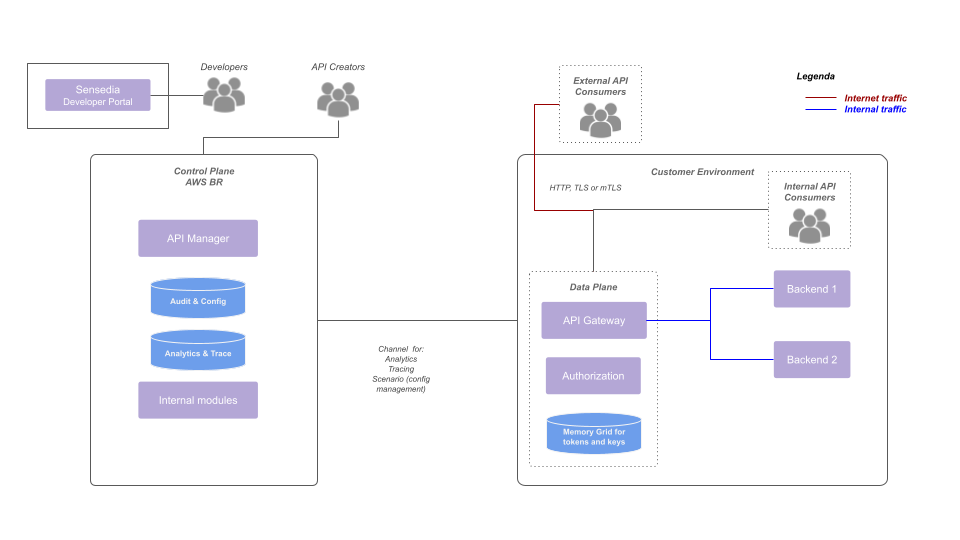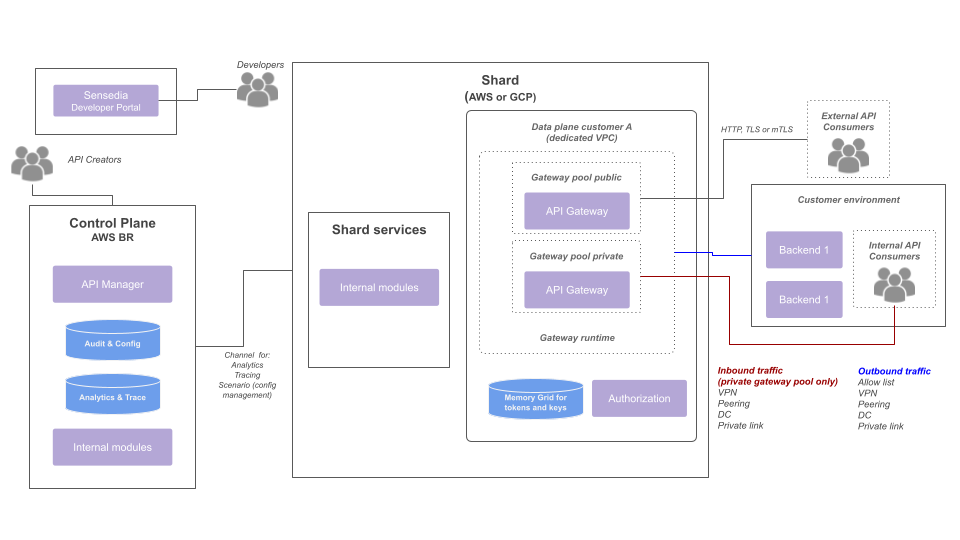Supported deployment models
There are two deployment models: cloud and hybrid. In the cloud model, the infrastructure is fully managed by Sensedia teams. In the hybrid model, the environment is managed by the customer.
Responsibility matrix
| Responsibility/Model | Cloud | Hybrid |
|---|---|---|
Setup |
Sensedia |
Customer* |
Product support |
Sensedia |
Sensedia |
Infrastructure maintenance |
Sensedia |
Customer* |
Update |
Sensedia |
Customer* |
Backup |
Sensedia |
Customer |
Monitoring |
Sensedia |
Customer |
Infrastructure security |
Sensedia |
Customer |
*With Sensedia support.
| SLA may be impacted due to local infrastructure issues. |
Hybrid model
A high-level view of the hybrid model can be represented as below:

More details about the hybrid installation can be found at this link.
| It is important to consider that there are several components that require administration and/or native infrastructure mechanisms for balance, redundancy and scalability. |
The platform is agnostic, however, it has dependencies that need to be served, designed and supported by the customer’s own technical team. The main examples are:
-
Load balancer and TLS termination
-
There are many options managed by the main cloud providers
-
Load balancers On-premises can also be used.
-
-
Redis
-
There are a few managed options offered by cloud providers.
-
ElastiCache for AWS.
-
MemoryStore for Google Cloud Platform.
-
Cache Redis for Azure.
-
-
Redis, as free software, can be installed in On-premises environments.
-
-
Containerization platform
It is extremely important to consider these items before opting for the hybrid model, since the availability of the platform directly depends on these components.
| Due to the need to manage these components, the customer must have a technical infrastructure team. This team is a mandatory requirement to use the hybrid model. |
Share your suggestions with us!
Click here and then [+ Submit idea]
